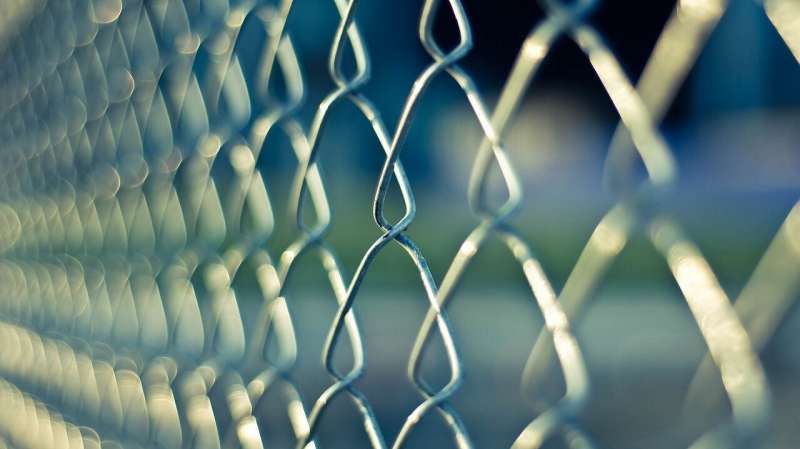People freed from prison during coronavirus may face big risks on the outside

We are witnessing humanitarian and public health crises in incarcerating institutions around the world. Leo Hylton, an incarcerated prison hospice volunteer in the United States, has been writing about life behind prison walls in the current pandemic. He writes: "Regarding the catchphrase of the day, social distancing, prison is an environment wherein that becomes an absurdity. As soon as I walk out of my cell I am included in a gathering of 64 people—54 more than is recommended by government order … I wonder how quickly the virus will spread when it eventually breaches the walls of this prison. Then I look at all those I know who are over 65 years of age or have a heart or lung condition … "
Hylton's concerns echo those of other incarcerated individuals, public health experts and practitioners, advocacy groups and lawyers who have drawn attention to the disproportionate risk of coronavirus infection detained people face.
Like Hylton, many have expressed concern for older and medically vulnerable adults in custody, calling attention to an existing problem that is intensified in the current crisis.
Their concerns are well-founded. Contained places like prisons and jails are "petri dishes" for the spread of viral respiratory infections; older and ill people in prison are especially vulnerable to serious COVID-19 complications. In response, there have been widespread calls for "compassionate release" of medically vulnerable individuals and some correctional services have moved to release people from their facilities.
My research on dying and prisons
As a medical anthropologist whose doctoral research focuses on dying and care in American prisons, I have been following the lives, and often the deaths, of the oldest and most critically ill individuals in state prisons.
Over thousands of hours in prison medical units, I have witnessed the end-of-life journeys of these men and their peer caregivers. I am distraught and heartbroken that COVID-19 is, unsurprisingly, attacking the very prisons and people I write about.
I strongly support humane measures to reduce the risks to incarcerated individuals, correctional and medical workers and communities. But historical injustices, systemic inequalities and harsh criminal justice ideologies and practices often create barriers to safe community re-entry, particularly for the most vulnerable individuals in prisons.
My research highlights complexities that must be confronted before individuals can be safely released to the community. I have seen far too many individuals released from custody —often despite the best efforts of correctional caseworkers —to precarious circumstances.
Some examples:
- A man with late-stage dementia bought a bus ticket to a shelter in a city hours away. The day of his release, he was taken into police custody on new charges stemming from dementia-related violence.
- A man who required dialysis several days a week died weeks after release because the only home he was approved to live in was a three-hour round trip to the nearest clinic.
- A military veteran in custody for nearly 50 years spent his last days in prison carefully crafting a small cardboard sign and selecting the street corner to hold it. His words to me were haunting: "See, I can die here as well as I can die on the street. On the street the dogs might get me. At least in here they'll throw me in the ground."
Lack of supports after release
Inadequate access to housing, employment, community supports, social services and health care can exacerbate existing health conditions, and may increase the risk of death, especially in the first two weeks following release. These issues are magnified for older or medically vulnerably prisoners. In their article "Growing Older: Challenges of Prison and Reentry for the Aging Population," American researchers Brie Williams and Rita Abraldes explain: "As older ex-prisoners re-enter their communities, they may face additional challenges such as being frail in an unsafe neighbourhood, having multiple medical conditions with limited access to medical care and leaving the familiarity of the place they have lived in for decades."
The current global pandemic will intensify the many challenges that older or medically vulnerable prisoners face upon release. Considering that medical systems around the globe have been pushed to the breaking point amid the crisis, and in light of ongoing public health measures, it would be irresponsible to release medically vulnerable people from prison without ensuring they can receive health care and access social supports.
As Kristin Ochoa, medical director at the Office of Diversion and Reentry with the Twin Towers Jail in Los Angeles, shared during a webinar on COVID-19 and incarceration: "There are some people who are really vulnerable who are about to leave and it is not good for their health, and the public health, for them to be released without any resources…housing and clinical services are paramount."
Ochoa acknowledged some challenges with release, noting: "The releases happened so fast, that a lot of people became homeless."
Without careful consideration, we risk replacing one major danger with another. Despite our best intentions, what we intend as a humane approach may in fact have the opposite effect. The release of the vulnerable must be made with the assurance that all necessary supports will be in place.
I argue not against compassionate release, but against an ill-informed and haphazard approach that replaces one harm with another. The "what comes next" aspect of release must be fully addressed. Ultimately, a humanitarian approach and critical public health action are needed to ensure the health and well-being of medically vulnerable people in prisons.
The COVID-19 crisis is the immediate concern, but it shouldn't just draw our attention and action to the inhumane conditions of correctional institutions. There are many potentially deadly problems associated with re-entry for older and medically vulnerable people. It is important that we consider what in-community supports are needed to prevent these outcomes.
This article is republished from The Conversation under a Creative Commons license. Read the original article.![]()
















